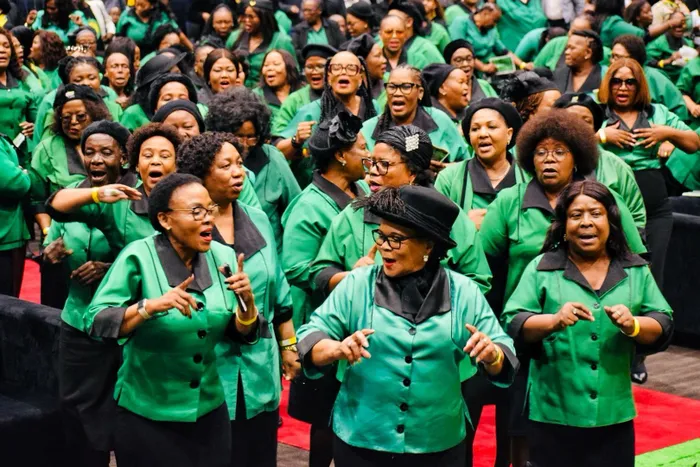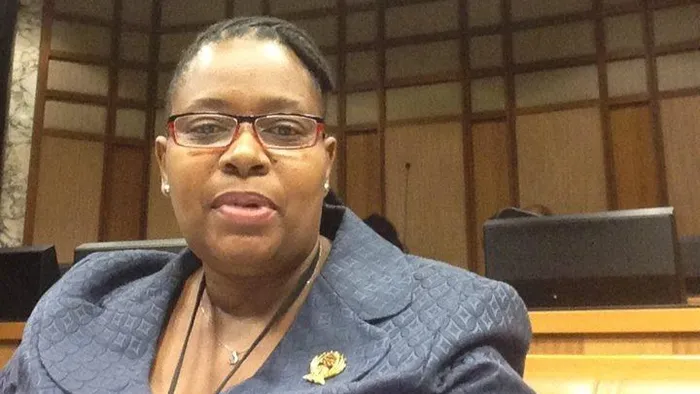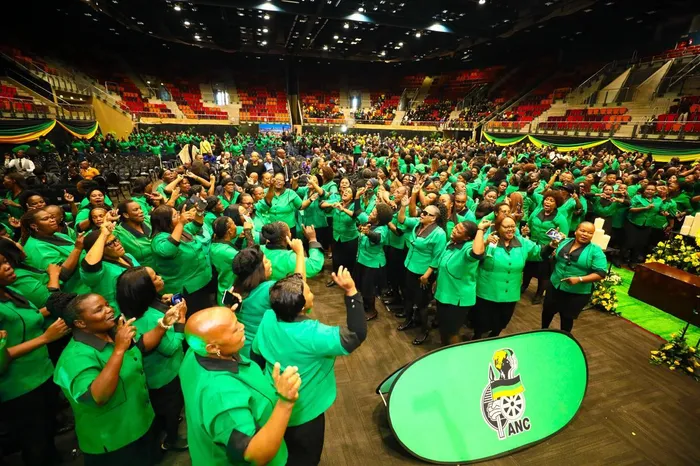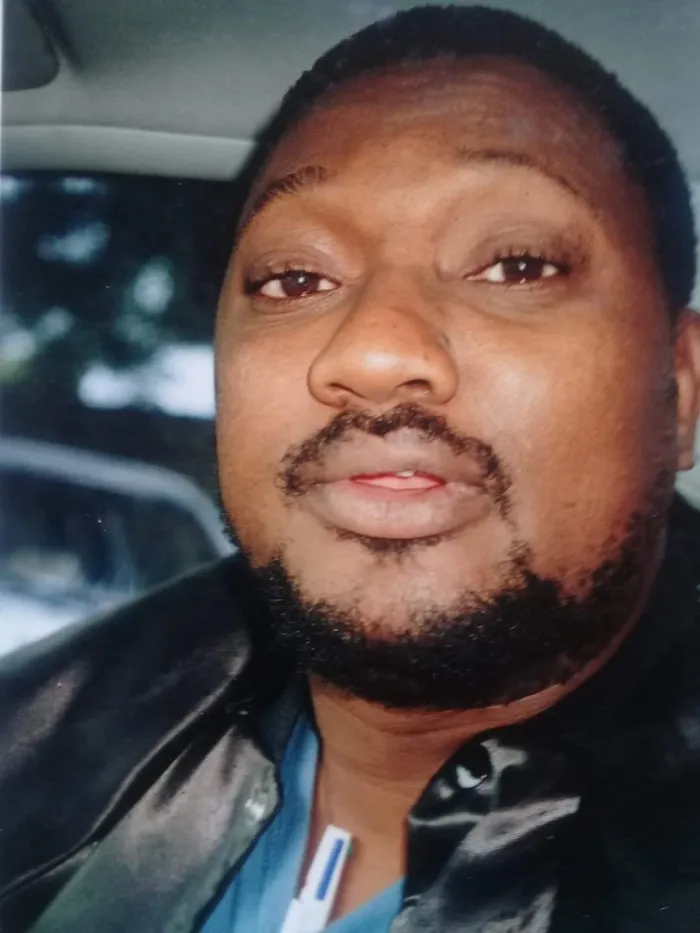The Lungi Mnganga-Gcabashe I know

The ANC Women's League at the funeral service of the late Lungi Mnganga-Gcabashe.
Image: ANC
When Comrade Lungi Mnganga-Gcabashe identified herself with the organs of the people’s power, local leadership deployed her without hesitation to serve in both the KwaMashu Peace Committee and the KwaMashu Joint Action Committee (JAC). The JAC was similar to the Joint Rent Action Committees (JORAC) that existed in townships like Lamontville, Chesterville, Klaarwater, and Hambanathi.
The South African National Civic Organisation (Sanco) traces its origins to JORAC. JORAC was active in the Port Natal Administration Board townships, advocating against the shortcomings of the Black township administration system. This advocacy was part of a broader campaign for Black and African townships to undermine and disown apartheid administrations imposed on them without the necessary democratic processes to elect leadership. It was also a direct response to the call made by the African National Congress (ANC) to render South Africa ungovernable.
Comrade Lungi was part of that struggle which produced, among others, the late Msizi Dube of Lamontville, famous for the rent boycott “Asinamali” ("we have no money") resistance campaign. She stood at the forefront of the struggle during the life-threatening days of the late eighties, when death was a constant presence for all activists.

Lungi Mnganga-Gcabashe died at her home in Westville.
Image: Facebook
The release of Nelson Mandela in 1990 from prison brought misery in KwaZulu-Natal, especially in the hinterlands, as it heightened political violence engineered by the apartheid security forces and their surrogates, i.e., Inkatha warlords, KwaZulu Police and gangsters who butchered and maimed innocent civilians and activists of our movement. This led to a dramatic increase in refugees from the province’s hinterland, whose properties were gutted and whose livestock were confiscated by impis to feed themselves, with the remainder kept by impis in their homesteads.
Upon returning from a historical welcome home rally for Nelson Mandela at Durban Kings Park Stadium in February 1990, buses ferrying KwaMashu rally goers were attacked at Siyanda informal settlement, and houses in the nearby KwaMashu K-section extension, where Comrade Lungi’s childhood home is still located, were gutted in that violent attack.
The KwaMashu Peace Committee engaged local structures to allow peace talks between KwaMashu and Siyanda. Indeed, the Joint Working Committee (JWC) of the ANC, the South African Communist Party (SACP) and the Congress of the South African Trade Unions (Cosatu) assigned me to lead that delegation. Comrades Lungi and Mcebo Mfusi represented the K-Section in that delegation. She demonstrated bravery, zeal, fearlessness, and composure, taking a huge risk as an unarmed woman to enter the lion’s den that was Siyanda Informal Settlement at the time.

Members of the ANC Women's League were in attendance at the funeral service of Lungi Mnganga Gcabashe
Image: ANC
Our unambiguous message to Kati, the sole Siyanda leader who later became Inkatha leader in the area, was that KwaMashu is more than ready to wipe out that informal settlement if they don’t cooperate. The preconditions for peace that we put on the table were to:
Stop AmaSinyora gangsters using Siyanda as a springboard for its notoriety against K-section
To offer an unconditional apology for attacking KwaMashu residents.
AmaSinyora were originally a group of gangsters who were engaged in violent crime but were later co-opted by the apartheid security system to target activists and later everybody. They were there to cause chaos in the community and would shoot residents indiscriminately.
Our strategy was to neutralise, isolate and destroy AmaSinyora bases with the full support of the residents of these communities.
Indeed, Kati and the Siyanda community cooperated. Hence, to date, there are no hostilities between these communities. Subsequently, AmaSinyora vacated Siyanda. Comrade Lungi was in the thick of things as we navigated these treacherous waters.
She almost lost her job at Bhambayi Clinic, Inanda, due to her commitment to the struggle. She not only had bizarre sick leaves, but the telephone bill at the clinic got so exorbitant, and photocopying papers mysteriously went missing. She was using the clinic's administrative stock and resources to further the efforts of her movement.
We served together in the first ANC KwaMashu Branch Executive Committee (BEC). This was made up of comrades like Curnick “Nyanga Mthakathi” Ndlovu, Jeff Mathami Radebe, Mzi Khumalo, Advocate Louisa Zondo, Tiki Phungula, Nhlanhla “Sbari” Buthelezi and others.
Like myself, Comrade Lungi was stubborn but inquisitive – the proverbial tough nut to crack. She was not easily swayed but stuck to her principles until the end. However, she was always ready to concede where she erred.
It wasn’t surprising that upon returning from the Malibongwe Conference in Amsterdam, she was roped into a collective ANC Southern Natal Organising Department under Comrade Bhekokwakhe Cele, working closely with former Robben Islanders, including the late Joseph Mpisi Nduli and Matthews Meyiwa.
Upon her election as Women’s League Deputy President, we had agreed to have a discussion and develop a programme befitting the office she occupied, including visiting the now-departed Getrude Shope.

Mlungisi Ndhlela
Image: Supplied
That meeting never took place because, while we thought we had time, the universe had other ideas. Comrade Lungi is gone now. The only consolation is that he lived a life of such principle that none amongst us is embarrassed to be associated with her. I will miss her stubbornness. I will miss her forthrightness. I will miss her commitment to the cause.
Lala Uphumule (rest well), Comrade Lungi!
(Ndhlela is a member of the ANC. His views don't necessarily reflect those of the Sunday Tribune, Independent Media or IOL)
Related Topics:
